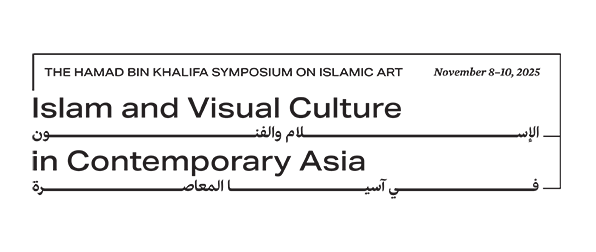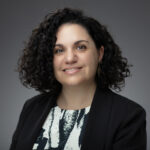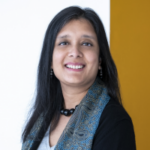2025 Hamad bin Khalifa Symposium on Islamic Art
November 8-10, 2025, VCUarts Qatar
Islam and Visual Culture in Contemporary Asia
The 11th Biennial Hamad bin Khalifa Symposium on Islamic Art, “Islam and Visual Culture in Contemporary Asia,” explores Muslim communities’ lived experiences through artistic engagement while challenging West Asian-centric narratives in Islamic art history. By focusing on traditionally overlooked practices in South, Southeast, and East Asia, the Symposium examines how Islamic visual practices intersect with diverse cultural communities across regional contexts. The event bridges historical and contemporary approaches, emphasizing organic connections between Islam and Asia while exploring evolving faith practices in daily Muslim life. Through themes of artist networks, urbanism, performance, communal memory, and migration, among others, the Symposium aims to dismantle conventional center-periphery hierarchies in favor of a pluralistic model with multiple cultural nodes.
As we consider these aims, several questions emerge: How might centering diverse Asian Muslim communities transform the field of Islamic art studies? In what ways can institutional and independent artistic collaborations challenge conventional definitions of “Islamic” art? How do transregional networks of artists navigate the complexities of religious identity across varied political landscapes? What new methodologies might emerge when we examine Islamic visual culture through multiple geographic and cultural lenses simultaneously? Through this Symposium, we hope to begin addressing these questions while creating space for both established academics and emerging voices to enrich the ongoing discourse.
Making Connections: The Fieldwork Shaping Our Vision
Developing this year’s Symposium theme required moving beyond traditional research models. To better understand the question we were asking, we conducted extended visits to Singapore, Hong Kong, and Seoul, meeting with scholars, curators, artists, and collaborators to discuss their work in person.
In Singapore, we met with curators at the National Gallery, Malay Heritage Centre, and Asian Civilisations Museum, as well as artists at LASALLE College. Our exploration encompassed the city’s multicultural landscape, from Chinatown’s markets to Muslim quarters around Arab Street with its Sultan Mosque. During Deepavali, we experienced Little India’s vibrant celebrations and visited the historic Sri Veeramakaliamman Temple. These encounters highlighted Singapore’s layered history as a contemporary art hub where Islamic traditions continually evolve through intersections with Malay, Indian, Chinese, and West Asian cultural practices within the city’s multilingual, pluralistic environment.As part of our visit to Hong Kong, we engaged with cultural institutions like Asia Art Archive, the University of Hong Kong, M+, the Hong Kong Palace Museum, and the Hong Kong Museum of Art, exploring their collections that highlight regional networks and transnational exchange. We experienced the city’s layered urban landscape, where mosques and historic buildings are nestled between glass towers and neon signs. Throughout our journey, we observed how Islam, though not always immediately visible, is embedded in Hong Kong’s social fabric through historic Muslim communities, migrant networks, and everyday practices that both parallel and diverge from Singapore’s expressions.
Our visit to Seoul included time at the Museum of Modern and Contemporary Art and the National Museum of Korea, where we learned about their upcoming collaboration with Doha’s Museum of Islamic Art for a groundbreaking 2025 exhibition. At Barakat Contemporary, we discussed the gallery’s important role as a platform for West Asian art. We explored Seoul’s diverse urban fabric, moving from Hannam-dong’s hills to Itaewon’s busy streets and a tranquil Buddhist temple near Gangnam. Unlike in Singapore or Hong Kong, Islamic presence appears less integrated in Seoul’s sprawling, river-divided cityscape, with the Central Mosque standing somewhat isolated. Yet in conversations with curators and scholars, we heard about the growing number of Muslim migrant workers in Korea and the increasing visibility of Islamic traditions. Even if not immediately apparent on the surface, we came away with the sense that change is underway, and that questions of presence, belonging, and cultural recognition are gaining traction.
Our explorations revealed how Islamic traditions continuously evolve through global mobility, lived pluralism, and contemporary art – not merely adapting to contexts but actively shaping spaces and communities. We confronted our own assumptions and unintentional biases, coming to better understand that these supposedly “peripheral” regions are actually vibrant centers where geographic and cultural categories are constantly renegotiated. We recognized how North Atlantic academic frameworks have often relegated Islamic art to a geographically confined past, overlooking both its broader global presence and its contemporary vitality. Nonetheless, Islam’s presence was unmistakable throughout our journey. It was embedded in urban landscapes, artist collectives, exhibitions, archives, and dynamic networks operating across local and transnational contexts. In shaping the Symposium program, we have worked to reflect these complexities with intention, and to offer a more nuanced view of what Islamic visual culture might encompass in the present.

 Hala Auji
Hala Auji Radha Dalal is Associate Professor of Islamic Art and Architecture and Director of Art History at VCUarts Qatar. Dalal researches visual cultures of mobility and urbanism with a particular emphasis on the Ottoman Empire and its socio-political interactions with other European and Asian polities during the nineteenth and early twentieth centuries. At present, she is working on a monograph project titled The Khilafat Movement and Print Media in British India and Ottoman Turkey, 1919-1924. Her research has been supported with funding from VCUarts Qatar, the MacArthur Foundation, the Kress Foundation, the National Endowment for the Humanities, and the Qatar National Research Fund. She co-edited the proceedings of the eighth and the ninth Hamad bin Khalifa Symposia on Islamic Art—The Seas and the Mobility of Islamic Art (Yale University Press, 2021) and The Environment and Ecology in Islamic Art and Culture (Yale University Press, 2023). At VCUarts Qatar, Dalal teaches a wide range of undergraduate courses including global art and Islamic art surveys, upper-division thematic offerings on various aspects of Ancient, Islamic, Asian, and European art, and senior seminars, especially related to her own research on collective memory, mobility, and visual culture. Before joining VCU, she taught at the College of Charleston. She currently serves on the College Art Association’s Board of Directors and as the Vice-President of the Society for Global Nineteenth-Century Studies. Dalal received her PhD in Art History from the University of Minnesota. She also earned her MA in Art History there with a focus on Islamic and Chinese Art. She holds a BA in Art History and Archaeology as well as a BS in Neurobiology and Physiology, both from the University of Maryland, College Park.
Radha Dalal is Associate Professor of Islamic Art and Architecture and Director of Art History at VCUarts Qatar. Dalal researches visual cultures of mobility and urbanism with a particular emphasis on the Ottoman Empire and its socio-political interactions with other European and Asian polities during the nineteenth and early twentieth centuries. At present, she is working on a monograph project titled The Khilafat Movement and Print Media in British India and Ottoman Turkey, 1919-1924. Her research has been supported with funding from VCUarts Qatar, the MacArthur Foundation, the Kress Foundation, the National Endowment for the Humanities, and the Qatar National Research Fund. She co-edited the proceedings of the eighth and the ninth Hamad bin Khalifa Symposia on Islamic Art—The Seas and the Mobility of Islamic Art (Yale University Press, 2021) and The Environment and Ecology in Islamic Art and Culture (Yale University Press, 2023). At VCUarts Qatar, Dalal teaches a wide range of undergraduate courses including global art and Islamic art surveys, upper-division thematic offerings on various aspects of Ancient, Islamic, Asian, and European art, and senior seminars, especially related to her own research on collective memory, mobility, and visual culture. Before joining VCU, she taught at the College of Charleston. She currently serves on the College Art Association’s Board of Directors and as the Vice-President of the Society for Global Nineteenth-Century Studies. Dalal received her PhD in Art History from the University of Minnesota. She also earned her MA in Art History there with a focus on Islamic and Chinese Art. She holds a BA in Art History and Archaeology as well as a BS in Neurobiology and Physiology, both from the University of Maryland, College Park.
